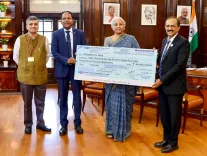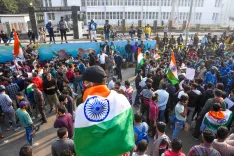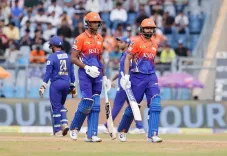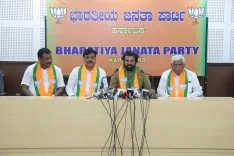What Does Mohan Bhagwat Say About the Good and Bad of RSS?
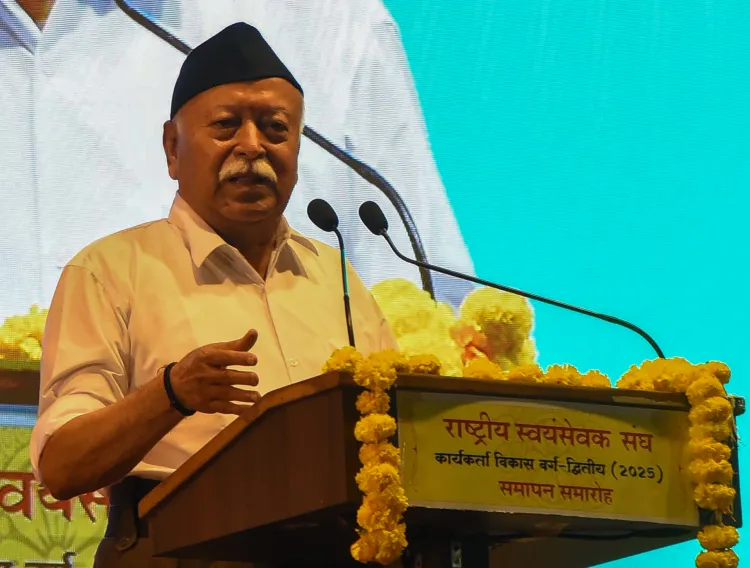
Synopsis
Mohan Bhagwat, the head of RSS, shares insights on how perceptions of the organization change when people experience it firsthand. He emphasizes the importance of volunteerism, the history of India’s struggle for independence, and the need for national security. His remarks highlight the character-driven ethos of the Sangh and its growing influence.
Key Takeaways
- Understanding through Experience: Personal engagement with the Sangh leads to deeper appreciation and learning.
- Volunteerism is Key: Ordinary volunteers are the backbone of the Sangh's efforts.
- Historical Context: Recognizing the ongoing legacy of India’s struggle for independence is vital.
- Community Focus: Sangh volunteers prioritize societal welfare over personal issues.
- Security and Self-Reliance: Emphasizing the need for national security and self-sufficiency is crucial.
Nagpur, June 6 (NationPress) Rashtriya Swayamsevak Sangh (RSS) Sarsanghchalak Mohan Bhagwat stated on Friday that many individuals speak about the organization without truly understanding it, presenting both its 'positive and negative' aspects. “However, once individuals experience the Sangh firsthand, regardless of their fame or origin, they often express, 'I was immensely pleased and gained valuable insights,'” he remarked during the launch of parts 1 and 2 of the book titled “Sangh Jeevan” authored by Ramchandra Devtare.
Discussing the essence of RSS, Bhagwat remarked: “There are numerous individuals who can articulate the Sangh's mission better than I can. They possess their own responsibilities. My involvement does not elevate my status, nor does it diminish those who are not involved. What truly matters is the character and essence of a person, rather than their actions or appearances.”
Delving into the role of RSS volunteers, Bhagwat explained: “The journey of a volunteer is deeply emotional. They integrate with the community while performing their duties, yet they achieve extraordinary feats while remaining humble. The true strength of the Sangh lies within its ordinary volunteers. Every day, regardless of personal challenges, they attend the RSS Shakha and prioritize the welfare of others.”
“During the 1971 war, while soldiers were engaged in combat, Sangh volunteers were actively supplying them with essential materials. This selfless tradition continues, as Sangh volunteers regard not just their families but the broader society as their own. They diligently uphold their rituals and maintain composure while serving,” he added.
“Individuals who engage with the Sangh's philosophies come to appreciate its significance. Previously, the Sangh faced skepticism, but now its outreach has expanded significantly. The collective efforts of volunteers have contributed to the Sangh's considerable growth,” he noted.
Bhagwat also addressed the debate surrounding the origins of India's Independence, stating: “The quest for freedom began in 1857 and persisted through various efforts, leading to our liberation. While it’s appropriate to acknowledge those who achieved it in their lifetime, one must be cautious not to let that recognition inflate their ego. True depth of character allows one to embrace success with grace.”
Furthermore, Bhagwat emphasized the necessity for the nation to be self-sufficient in security, especially in light of recent events such as the Pahalgam terror attack and the following Operation Sindoor. He advocated for the development of new technologies and research initiatives.
In his address at the concluding ceremony of Karyakarta Vikas Varg, he stated: “In the Pahalgam attack, innocent citizens were ruthlessly murdered by terrorists who infiltrated our territory. This incited profound pain and anger, with a collective desire for justice. Some retaliatory actions were taken, showcasing the bravery and capabilities of our military. The resilience of the governmental framework was also evident, as unity emerged within society and the political class. This solidarity must endure.”

